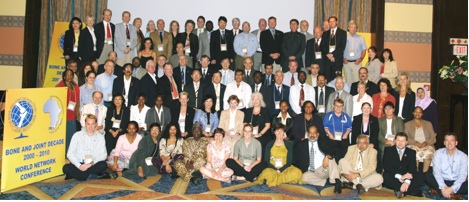The Bone and Joint Decade
2006 Patient Advocacy & World Network Conference
Durban, South Africa
01-04 November 2006
Global attention on bone and joint health converged in Durban, South Africa, from November 1-4, 2006 when delegates of the Bone and Joint Decade Annual World Network Conference and the International Patient Advocacy Seminar came together to cultivate strategies for the prevention of bone and joint disorders in both the developed and developing world. “Keep People Moving” was the motto of the global forum, at which nearly 50 countries were represented by 120 delegates including government officials, doctors, researchers, educators and patients.
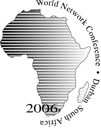 Preventative Measures: Chairman of the BJD South African Network, Prof Girish Mody said: “The spectrum of topics at this meeting provided an unprecedented opportunity to focus international attention on the impact, burden and challenges relating to musculoskeletal disorders in Africa. These included the rising number of road traffic injuries, the impact of HIV on bone and joint surgery, the emergence of rheumatic diseases in Africa, osteoporosis, osteoarthritis, rehabilitation and patient advocacy with contributions by a distinguished panel of local and international speakers”.
Preventative Measures: Chairman of the BJD South African Network, Prof Girish Mody said: “The spectrum of topics at this meeting provided an unprecedented opportunity to focus international attention on the impact, burden and challenges relating to musculoskeletal disorders in Africa. These included the rising number of road traffic injuries, the impact of HIV on bone and joint surgery, the emergence of rheumatic diseases in Africa, osteoporosis, osteoarthritis, rehabilitation and patient advocacy with contributions by a distinguished panel of local and international speakers”.
Notably, Hon. Ms. Nozizwe Madlala-Routledge, South African National Deputy Minister of Health (pictured directly below), Dr. Sibongile Zungu, the Deputy Head Kwa Zulu-Natal Dept of Health (also below right, with Prof Lidgren), and Ms Criselda Kananda, talk-show host on Metro FM, the country’s largest radio station, addressed the international delegation. Ms. Madlala-Routledge, who recently stepped in for Dr Manto Tshabalala-Msimang, National Minister of Health, as acting minister, spoke of the challenges in of delivering health care in South Africa.
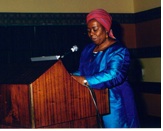 Faced with weakened health system straining under the burden of staff shortages, high costs, the HIV epidemic, and limited public access, the South African Department of Health believes that involving patients in their own care is essential for the country to be able to deliver adequate health services, she said. Her rousing proclamation “Patients must have a voice – if we expect patients to be responsible for their care, they must be involved in the decisions about how their condition is managed” , which echoes one of the BJD’s tenets, was met with a standing ovation.
Faced with weakened health system straining under the burden of staff shortages, high costs, the HIV epidemic, and limited public access, the South African Department of Health believes that involving patients in their own care is essential for the country to be able to deliver adequate health services, she said. Her rousing proclamation “Patients must have a voice – if we expect patients to be responsible for their care, they must be involved in the decisions about how their condition is managed” , which echoes one of the BJD’s tenets, was met with a standing ovation.
In addition to the international presentations, a draft version of the BJD Global Standards of Care Documents on Osteoporosis/Hip Fractures and Pain which were initiated at the 2005 World Network Conference in Ottawa, Canada were presented, and the newly outlined presented the BJD Strategic Plan 2006 – 2010 and Beyond was adopted.
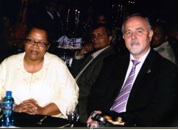 The events held in Durban over the course of the four days included a two-day Patient Advocacy Seminar for advocacy leaders, a one-day Annual Symposium of the National Action Network of South Africa, the 2006 World Network Conference and several open public lectures in Cape Town and Johannesburg before and after the Durban meetings.
The events held in Durban over the course of the four days included a two-day Patient Advocacy Seminar for advocacy leaders, a one-day Annual Symposium of the National Action Network of South Africa, the 2006 World Network Conference and several open public lectures in Cape Town and Johannesburg before and after the Durban meetings.
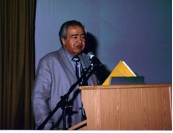 Prof. Mody said: “The foundation has been laid during the first half of the Decade for further progress and growth during the second half. The commitment, support and action by various role players are necessary to enable us to make a significant contribution towards the mission of the Bone and Joint Decade for the benefit of South African society and those affected by musculoskeletal disorders and their families worldwide.”
Prof. Mody said: “The foundation has been laid during the first half of the Decade for further progress and growth during the second half. The commitment, support and action by various role players are necessary to enable us to make a significant contribution towards the mission of the Bone and Joint Decade for the benefit of South African society and those affected by musculoskeletal disorders and their families worldwide.”
The International Steering Committee congratulates and thanks Prof Mody for his work in organising the memorable 2006 conference, which was a true display of excellence, innovation and dedication.

